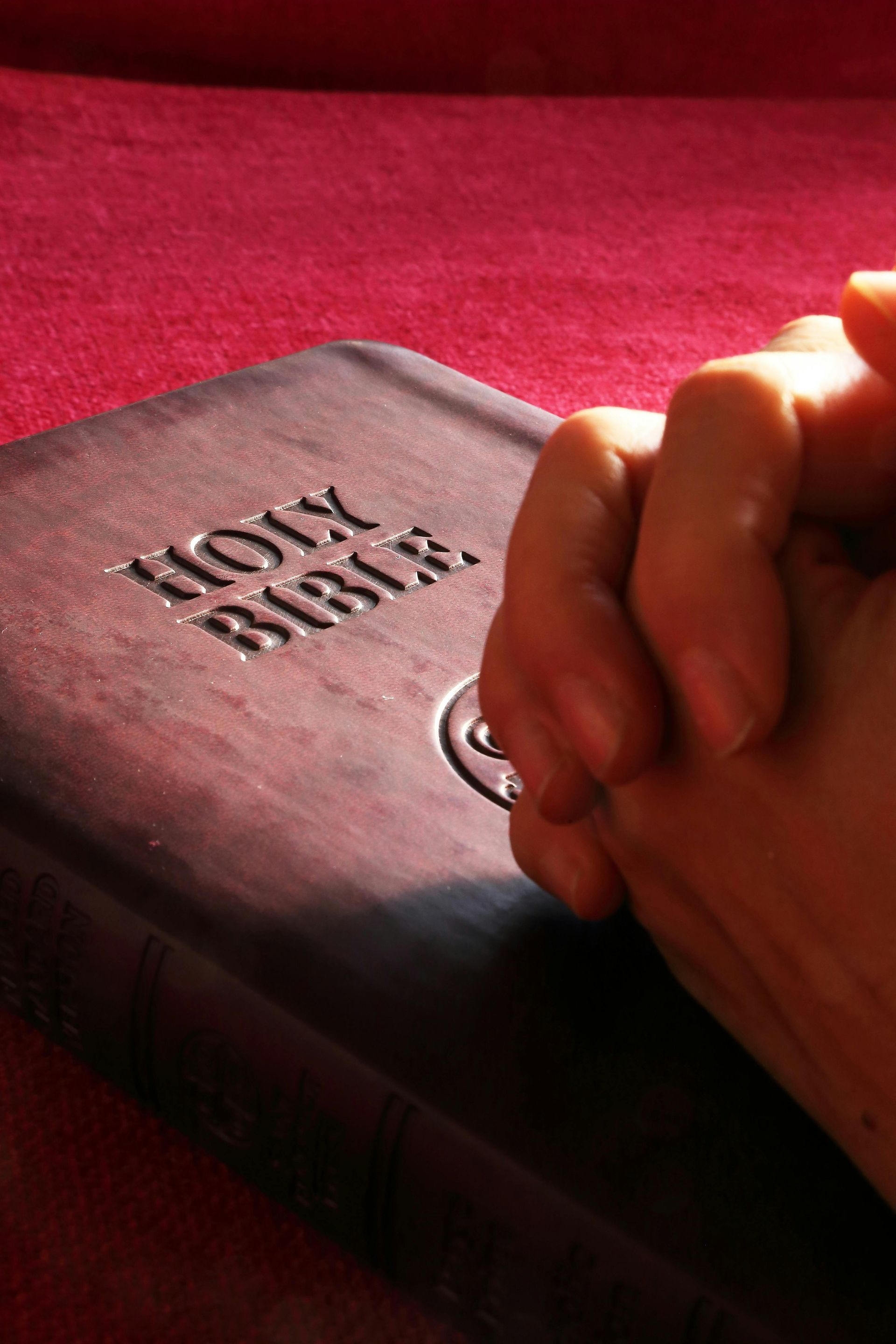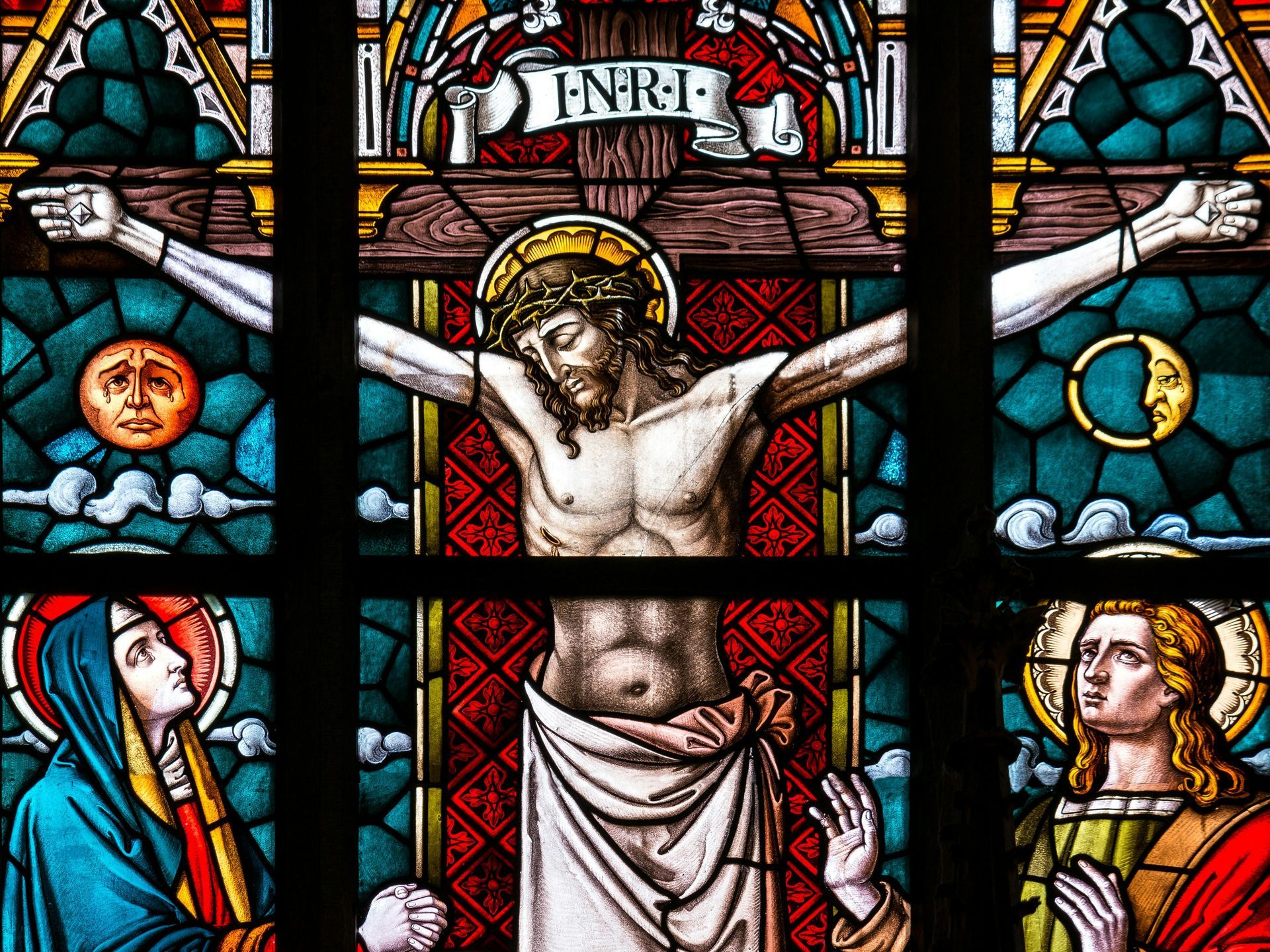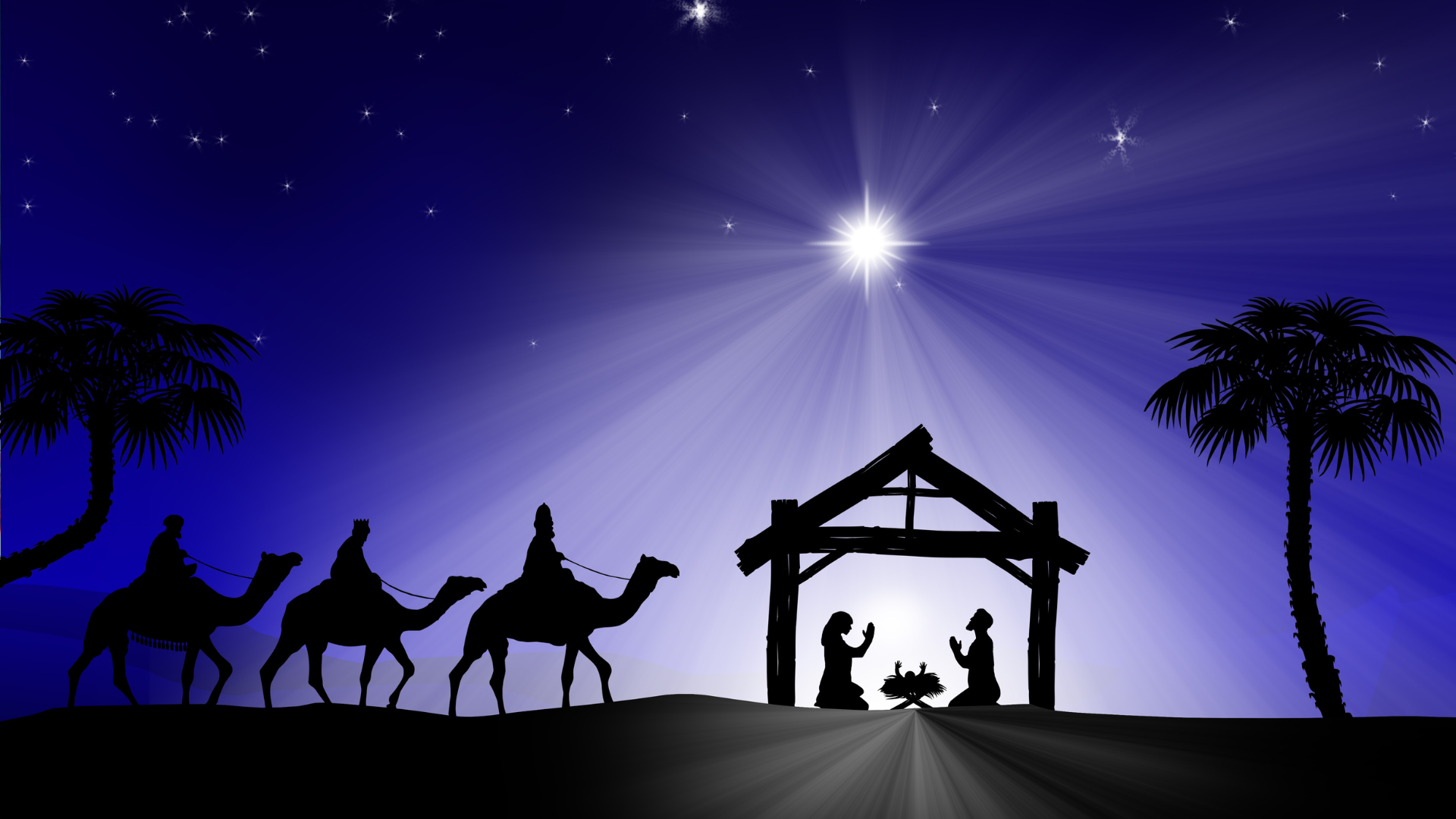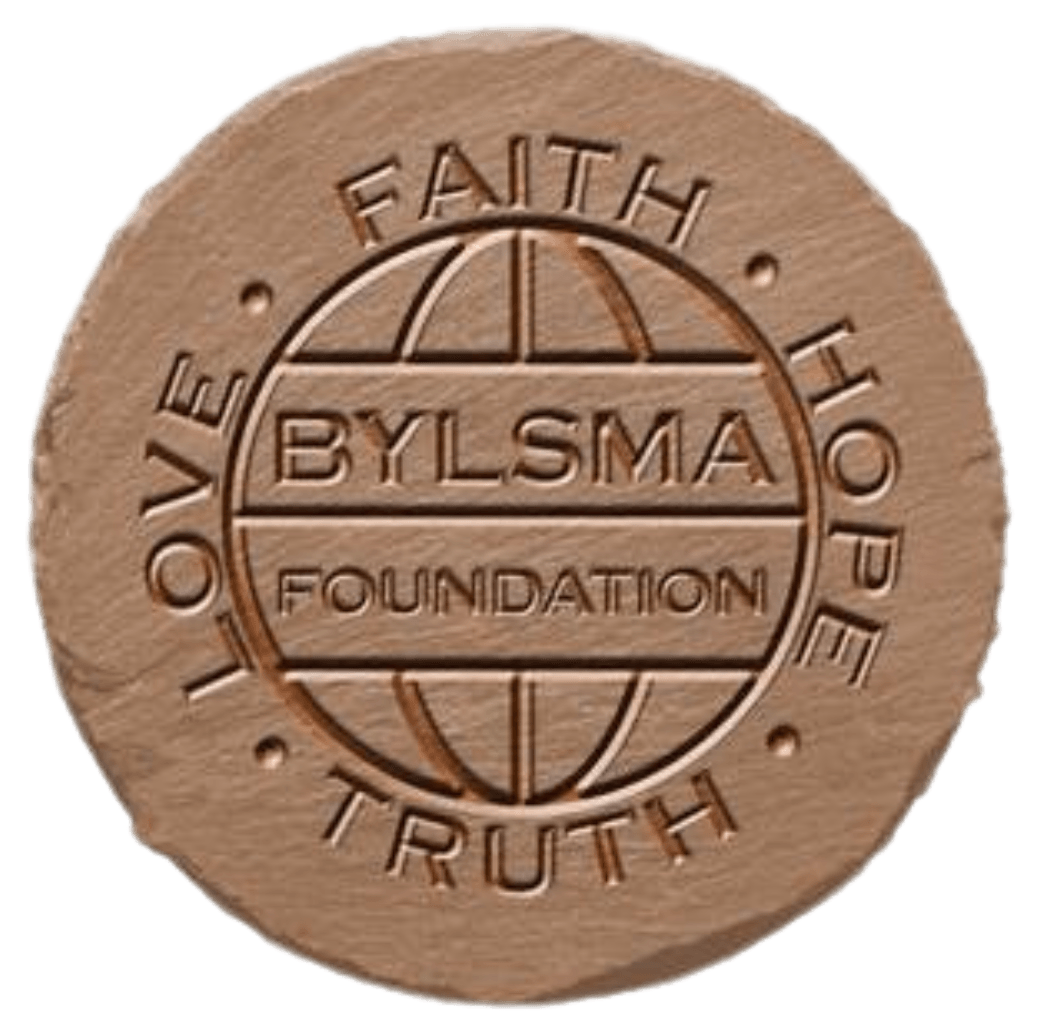Bylsma’s Bible Blogs
# 17 The Bible In A Nutshell

The Holy Bible is a collection of 66 documents written by many authors during a 1,600-year period, starting in about the 15th century BCE (there is no agreement about when the first book was written). The documents (“books”) were not organized in chronological order. This is a condensed summary of all 66 books in 24 sections that cover the contents of the 24 chapters that appear in The Simplified Short Bible: A Short Chronological Summary of the Old and New Testaments. Each section indicates the parts of the Bible that are summarized.
[This summary is part of the book, The Bible I Never Knew (Byblio Press, 2024), and may be reproduced entirely or in part without permission from the author as long as it is used for study and non-commercial purposes. Any complete reproduction of this summary must include this information about its reproduction. © Copyright by Peter J. Bylsma. All rights reserved.]
THE OLD TESTAMENT
1 – The Beginning
Genesis 1–31
A loving God created a wonderful world and humans in God’s image. Evil forces infected the world with sin, causing people to disobey God. God told Abram to move to Canaan where he eventually had a son, Isaac. Abraham proved he trusted God and was told he would lead a special group of people who lived in Canaan – his descendants would be countless as long as they obeyed God; they would be blessed, and every nation would be blessed by them. Isaac married Rebekah and had twins, Esau and Jacob, and Jacob tricked Esau into giving away the normal blessings that belonged to his older brother. Esau wanted to kill Jacob, who escaped to live with his relatives many miles away. Jacob worked with his relatives for many years, and he eventually had 12 sons and a daughter with Rachel and his three other wives. God told him he would be blessed and have many descendants, the same promise God made to Abraham. When Isaac decided to return to Canaan, his awkward departure strained his relationship with his relatives. Eventually, they worked out their differences and left each other as friends.
2 – Jacob Returns to Canaan
Genesis 32–48
Jacob returned to Canaan and God changed his name to Israel. He mended his relationship with Esau, and his wife Rachel died when she had a son, Benjamin. Joseph was Rachel’s first son and was Jacob’s favorite. His older brothers hated him and staged his death and sold him to traders who took him to Egypt. Joseph was so wise that the Egyptian leader (Pharoah) put him in charge of the entire country, including supervising food sold to foreigners during a long famine. When his brothers came to Egypt to get food, they didn’t recognize him – they all thought he was dead. At first, Joseph didn’t let them know who he was, but later he told them the truth – he was alive and would take care of them. The evil done to him was used by God to bless them. Joseph arranged for all his relatives to move to Egypt where they were given the best farmland.
3 – Life in Egypt
Genesis 48–50, Exodus 1–12
Members of Jacob’s tribe were called Israelites and spoke Hebrew. Their population grew powerful and threatened a new Pharoah who made the Israelites his slaves. An Israelite baby named Moses was saved from death and adopted by Pharoah’s daughter. When he was fully grown, he was upset with how the Israelites were treated, and he killed an Egyptian soldier and escaped to avoid arrest. While living in the wilderness for many years, God appeared to him in a burning bush. God told Moses to return and tell Pharoah to let the Israelites leave Egypt and his brother Aaron would help him. God gave Moses special powers to show Pharoah God was on his side, but the king made life more miserable for the Israelites. Moses told the people that God was on their side and would deliver them from Egypt, but they didn’t believe him. Moses confronted Pharoah many times and created many problems for the Egyptians by using God’s power, but the king didn’t let the people go. After God killed all the first-born children and animals one night (but not those of the Israelites who put blood around their doors so death would “passover” their homes), the king ordered them to leave, and they left to go back to Canaan.
4 – The Israelites Leave Egypt
Exodus 13–40, Leviticus
Pharaoh soon tried to recapture the Israelites, but Moses used God’s power to open a path through vast waters, and the pursuing Egyptian army drowned when the water returned to its normal depth. The Israelites understood God saved them, and God faithfully provided water and food as they traveled in the wilderness. Moses was God’s spokesman, and an agreement was made – God would love and protect the Israelites if they obeyed God. While camping near Mount Sinai, Moses received many commands and rules from God that the people were to obey in order to create a just, healthy, loving, and holy society. There were rewards and blessings if people obeyed God’s laws, but punishment would occur if people don’t follow God’s commands. When they disobeyed, the people were to seek forgiveness and make high-quality sacrifices and offerings to God. Shedding blood was a key sacrifice to mend a broken relationship, and God forgives those who are sorry for their disobedience. God warned the Israelites that if they continued to break their agreement with God, they would lose their land and be enslaved by their enemies. God lived in a special tent (tabernacle), and male descendants of Levi, one of Jacob’s sons, were made priests to lead the people’s worship of God. When people rebelled against God and Moses, the Levites killed them.
5 – Life in the Wilderness
Numbers, Deuteronomy
When the Israelites got close to Canaan, 12 men went to learn about its conditions. When they returned, 10 of them said it would be impossible to conquer the region. However, Joshua and Caleb disagreed and said that if God was on their side, they would occupy the land. The Israelite leaders were angry that Moses led them out of Egypt to a land they couldn’t occupy. As punishment for their lack of faith, God had the Israelites wander in the wilderness for 40 years. During this time, the people constantly complained about their living conditions. After 40 years, they traveled toward Canaan and defeated the armies they met on the way. They camped on the banks of the Jordan River and Moses provided instructions about what they should do when they crossed into Canaan. Moses reminded the people several times to love and obey God because the Lord first loved them. If the Israelites didn’t obey God’s commands, they would lose their land. They were stubborn, but the wickedness of the people living in Canaan was much worse. They were to drive them all out, destroy their images of their idols and gods, and not intermarry with others because they would God’s people to stumble.
6 – The Occupation of Canaan
Joshua
Joshua led the people who crossed the Jordan River. The Israelites camped near the walled city of Jericho and the army marched around it many times. When trumpets blew on the seventh day, the walls fell and the Israelite army killed everybody except the prostitute Rahab and her family (she had lied to shelter two Israelites investigating conditions in Jericho). The army then conquered all the other nations in the region. After seven years of battle, the Israelites had conquered all the local nations, and the land was divided so the 12 tribes of Israel (descendants of Jacob) had their own land. But some areas were not occupied, so Canaanites continued living in the region. Joshua reminded everybody to be faithful to God and not mix with the Canaanites, and that God would destroy them if they behaved in evil ways. They all agreed to do this.
7 – Israel Struggles in Canaan
Judges, Ruth
The nation of Israel was a disjointed set of tribes that didn’t work together effectively. They didn’t follow the warnings of Moses and Joshua, and the people adopted the ways of the local Canaanites. As a result, God took away the blessings promised to them. When the tribes were attacked by other nations, leaders sometimes rose and used God’s power to lead the Israelites into periods of peace. But these good times were always followed by periods when the people returned to their evil ways. A young Moabite widow traveled to Bethlehem with her mother-in-law during a famine and married a wealthy landowner, and the couple had a son.
8 – Crowning a Unifying King
1 Samuel
The Israelite tribes fought each other and neighboring powers and didn’t follow the God who had blessed them. God called Samuel, a prophet and judge, to lead the people back to the Lord. The leaders of the tribes asked him to appoint a king so the Israelites could be unified and be like other nations. Saul was crowned the first king, but he lacked the personal qualities needed to be a good leader. A young shepherd, David, was picked to eventually become the next king, and he proved his courage and faith in God by killing Goliath in a dramatic confrontation with their enemy, the Philistines. Saul was jealous of David’s fame and tried to kill him, but David always escaped.
9 – King David and King Solomon
2 Samuel, 1 Kings, 1–2 Chronicles
Saul died in battle, and David became king and defeated many foreign powers, and extended the land of the nation in every direction. Jerusalem became the political and religious center of the nation. But David had an affair with Bathsheba and had her husband killed. After being confronted, he repented, but their child died. Their next child, Solomon, became the next king after David died. Solomon built an elaborate Temple where God would live, and he was known around the world for his great wisdom. But his wealth and fame led him to adopt other customs and ideas that were not consistent with God’s values.
10 – The Divided Kingdom
2 Kings, Amos, Hosea, Isaiah, Micah
There was no plan for picking the next king, and when Solomon died, a leadership struggle developed into a civil war. The nation divided into two kingdoms, Judah in the South and Israel in the North. As a divided nation, the kingdoms were weak and often attacked by foreigners. Both kingdoms had many kings, and most of them didn’t honor God, although some kings lead religious and social reforms that led to periods of peace and prosperity. Various prophets warned the people and leaders of both nations about the negative consequences of being corrupt, not providing justice, and not following God, saying other nations would conquer them and God’s blessings would be taken from them if they continued doing these things. Micah said people were to “act fairly, love kindness, and walk humbly with God.” Isaiah harshly condemned the moral decline of the Israelites, saying that people will be judged based on justice and correct living. He also predicted there would be a servant king, a Messiah, who would be a descendent of David, that would lead a worldwide kingdom that lasts forever. The blood of the Messiah’s death would save all people, including those of other nations, from their sins.
11 – Both Kingdoms Fall
Jeremiah, Joel, Zephaniah, Obadiah, Nahum, Habakkuk, Lamentations
The Assyrians were the first foreign power to conquer the Israelites, who were collectively known as Jews (from the term Judah). The Assyrians occupied the Northern Kingdom and took thousands of Jews captive. The Assyrians who moved into the region intermarried with the Jews that still lived there (people who lived in the region were called Samaritans because Samaria was the main city). In the Southern Kingdom, several kings were faithful to God, and the Kingdom lasted 136 years longer than the Northern Kingdom. But prophets often warned the people that God would judge them for their disobedience. They were to repent because God is merciful and forgiving; those who don’t repent and obey would be captured, but there is hope for those who love God and survive. Eventually the Babylonians conquered the Southern Kingdom; the Temple was looted and Jerusalem was burned to the ground. The Jewish leaders hadn’t listened to the prophets’ warnings, and the people suffered as God said they would.
12 – Life in Exile, Then Restoration
Ezekiel, Daniel, Haggai, Zechariah, Esther, Ezra, Nehemiah, Malachi
While the Jews lived in the land of their conquerors, they became active in the local economies and maintained their distinctive way of life. A few had leadership positions in the government (Daniel, Nehemiah, Esther) and stayed faithful to God, even though they faced possible death. Many wondered when the Jews would return to Canaan (Palestine), and Persian kings supported the people’s return. Several prophets encouraged people to return, and those who returned found Jerusalem in ruins. The city and Temple were rebuilt, and Zechariah predicted a glorious future for God’s people led by a servant leader who entered Jerusalem riding on a donkey. The Jews started waiting for the Messiah who would come and establish a new kingdom, and for a messenger who would come first to prepare the way for the Messiah.
13 – Biblical Poetry and Unique Books
Psalms, Proverbs, Ecclesiastes, Job, Jonah, Song of Solomon
The Old Testament contains six books that represent other forms of literature and are not part of a chronological history of the Israelites. Poetry in the Bible reflects strong emotions and imagery about God and the human condition. Several books provide lessons about life – wisdom for correct living and how to deal with difficult situations when life turns in unexpected directions. Stories about individuals are used to teach different lessons.
THE NEW TESTAMENT
14 – The Messiah Arrives
Luke 1–5, John 1, Matthew 1–4
For 400 years, the Israelites waited for a Messiah to deliver them from foreign domination. The Greeks and Romans conquered the region and Jewish religious leaders developed elaborate rules so the people would please God and get the Messiah to come. Jesus was born in Bethlehem, and when he was 30 years old, John the Baptist announced that the Kingdom of God was coming. Jesus was baptized and spent 40 days in a wilderness before starting his ministry. After resisting Satan’s temptations, he started preaching and performing miracles. When he spoke in his hometown of Nazareth, he spoke as if he was the Messiah, and those who knew him turned against him. He then called several men to follow him to be his disciples, and word spread about his healing powers.
15 – The Acts of Jesus
Luke 5–10, 18–21; John 2–5, Matthew 8–9, 11–12, 14–15, 17
Jesus spent several years performing different types of miracles and relating to people who were not respected in society – women, social outcasts, foreigners, and those with physical limitations. His powers and popularity threatened the religious leaders because he violated their traditions and revealed their misplaced values. He valued people more than rules and rebuked those with religious pride. He sent trusted followers to perform more miracles and spread news about him. In a message to John, Jesus confirmed that he was the Messiah, the son of God.
16 – The Teachings of Jesus
Luke 11–21, John 6–9, Matthew 5–7, 10–25, Mark
Most of Jesus’s teachings were new to his audiences, and some of his messages were hard to understand. He changed the meaning of long-established religious laws and customs, and he said people should serve and support others without conditions, especially those with great need. He strongly condemned the views held by religious leaders and said that being a loving, generous, and forgiving person is more important than following rules people were told they must follow. He said he was the human form of God, gave advice about how to communicate with God, and redefined what people need to do to gain God’s favor. But his core teachings about loving, serving, and forgiving others and being merciful, generous, and compassionate to all people were counter-cultural and not easy to follow.
17 – Arrest, Trial, and Execution
Luke 22–23, John 10–19, Matthew 26–27
After Jesus traveled and taught in the region for three years, his time on earth was ending. His teachings threatened the religious traditions of Judaism, and its leaders wanted to kill him. Jesus clarified some of his main teachings with his closest disciples during their last meal, and one of them betrayed him. Jesus was arrested in the middle of the night and the religious leaders said he must die because he said he was God. They arranged to have the Roman leader sentence him to death. He was brutally beaten but rarely spoke and never complained, and he didn’t try to avoid his death sentence. He died a few hours after being nailed to a cross, and he was buried in a stone tomb, which was then covered by a large stone and guarded by Roman soldiers.
18 – Life After Death
Luke 24, John 20–21, Matthew 28, Acts 1
After Jesus died Friday afternoon, he came back to life early Sunday morning. The frightened Roman guards at the gravesite left their post and were bribed to say the disciples stole his body. Jesus appeared to many people in different areas of Israel over the next 40 days, and he explained how he fulfilled the Biblical predictions that as the Messiah, he had to die as a loving sacrifice to save the entire world. The sacrifice of the blood of a perfect man permanently allowed all people to have their sins forgiven – sacrifices were no longer needed for people to be acceptable to God. Jesus told his disciples to tell everybody what he taught them and how they should live. He said he would return in the future and that God’s spirit would guide people who lived on earth. Then he rose into the sky and disappeared.
19 – The Apostles Respond and Scatter
Acts 1–11
God’s spirit soon filled the disciples, and they started healing people and preaching about who Jesus was. Thousands believed he was the Messiah and the religious leaders started arresting the disciples. The number of people who followed “the Way” of Jesus grew, and more leaders were appointed to help new believers. Those who followed Jesus started being persecuted, and Saul, a Pharisee, led this effort. But Saul became a believer after a dramatic experience on a trip to Damascus and became known as Paul, and many Jews tried to kill him. Peter, the lead disciple, continued preaching and healing people, and God revealed to him that forbidden practices, such as eating unclean food, were no longer forbidden. He met Cornelius, a Gentile military leader, and realized that Jesus came to save all people, not just the Jews. This news spread throughout the region, and the movement kept growing. People who followed Jesus were called Christians, and collectively they were called the church.
20 – Paul’s Travels, Part 1: Trips to Asia Minor and Greece
Acts 12–20
Paul took three long journeys to spread the gospel in Asia Minor (Turkey) and Greece. He traveled with different men, and many Jews and local people opposed him because they were threatened by his message about Jesus. Paul and his followers were jailed and nearly killed several times. Word about Gentiles becoming believers resulted in decisions about what rules they should follow – they didn’t need to follow Jewish rules and traditions. Paul’s trips started many churches throughout the region. When he returned to Palestine after his third trip, he expected to encounter more hardships.
21 – Paul Travels, Part 2: From Jerusalem to Rome
Acts 21–28
Paul went to Jerusalem and was accused of false teachings by Jews who knew him from his travels in Asia. After being arrested by Roman soldiers, he used his privilege as a Roman citizen to tell the authorities why people opposed him. He avoided plots to kill him, and his false accusers couldn’t provide any evidence against him. He won his appeal to have his case heard in Rome. On the trip to Rome as a prisoner, his ship faced a very strong storm and the ship was destroyed on the shores of Malta. Paul provided leadership on the boat and everybody survived the shipwreck. After arriving in Rome and while he waited for his trial, he spoke to many people about Jesus being the Messiah, and he wrote many letters to Christians he had met on his previous trips.
22 – Paul’s Letters to Believers
Galatians, 1–2 Thessalonians, 1–2 Corinthians, Romans, Colossians, Ephesians, Philippians, Titus, Philemon, 1–2 Timothy
Paul wrote letters to Christians who lived in Galatia, Corinth, Thessalonica, Rome, Colossae, Ephesus, and Philippi and to three Christian leaders – Timothy, Titus, and Philemon. He described and explained Jesus’s teachings and actions and discussed what they meant for believers. He also provided practical advice and encouraged those who received his letters. Paul’s longer letters included many concepts about God as he clarified and defended the faith. Here are the main ideas in his letters.
- Jesus was the human form of God and came to earth to give himself as the final sacrifice to forgive and save all people from their sins. People can’t earn God’s approval by following rules and laws. God’s free gift of eternal life is available to everybody – non-Jews were adopted into God’s family. Being free from sin through God’s forgiveness and unconditional acceptance gives people spiritual and emotional freedom, which helps them to be better models of holy living and a beneficial presence in the world.
- Jesus provided us with a concrete example of how we should live and act, and those who put their faith and trust in him are called to be like him. His followers should show elements of God’s character, including love for others, compassion, forgiveness, helpfulness, hope, humility, kindness, patience, peace, and perseverance.
- God’s spirit lives in people and helps them become more like Jesus and do what God wants them to do. Christians must stay focused on Jesus’s teachings and example and be united within their diverse community, and they are to resist the distractions and alternative belief systems that exist in society.
23 – Other Letters to Believers
1–2 Peter, James, Jude, 1–3 John, Hebrews
Other Christian leaders wrote letters to various believers. Peter’s two letters offered encouragement and instruction about the way to live a godly life, and he warned believers about following false teachings. The short letter by James was practical in nature, and the very short letters by Jude and John dealt with false teachings that circulated in the region. A general letter, Hebrews, makes the case to Jewish Christians about how Jesus related to the Old Testament and the importance of having faith during difficult times. These letters stressed some of the same themes found in Paul’s letters: Christians should love one another, live a good life, serve others through their actions, endure hardship, and resist evil and false teachings.
24 – Predictions About the Future
Matthew 13 and 24, Revelation
Jesus and others predicted certain things will happen in the future, including the judgment of those who are evil and rewards for those who remain faithful. These predictions are hard to understand because they use symbols that are unclear, and nobody knows when the final judgment will occur. Christians were being persecuted because their allegiance was to God, not to the Roman leaders, and John encouraged believers not to compromise their faith in order to blend in with others in society. At some time in the future, certain things will happen that indicate the final judgment is near. These include intense warfare and natural disasters and the persecution of Christians. A final battle between the forces of good and evil will eventually take place, and Jesus will return and defeat the forces of evil, which will be destroyed forever. Jesus and all the faithful will then live forever in heaven. The prediction of the final victory helps Christians endure during difficult times.
Bylsma’s Bible Blogs











